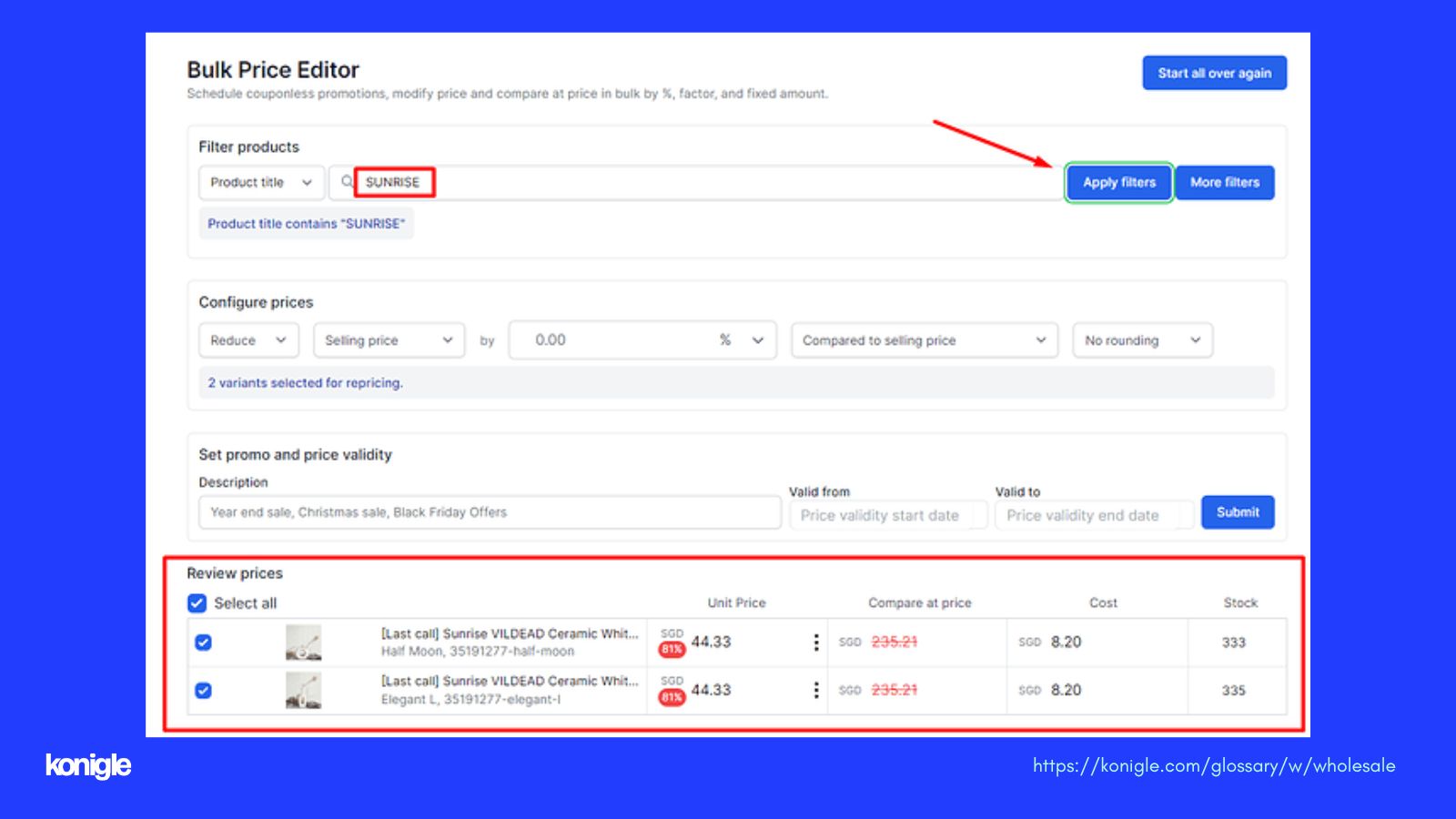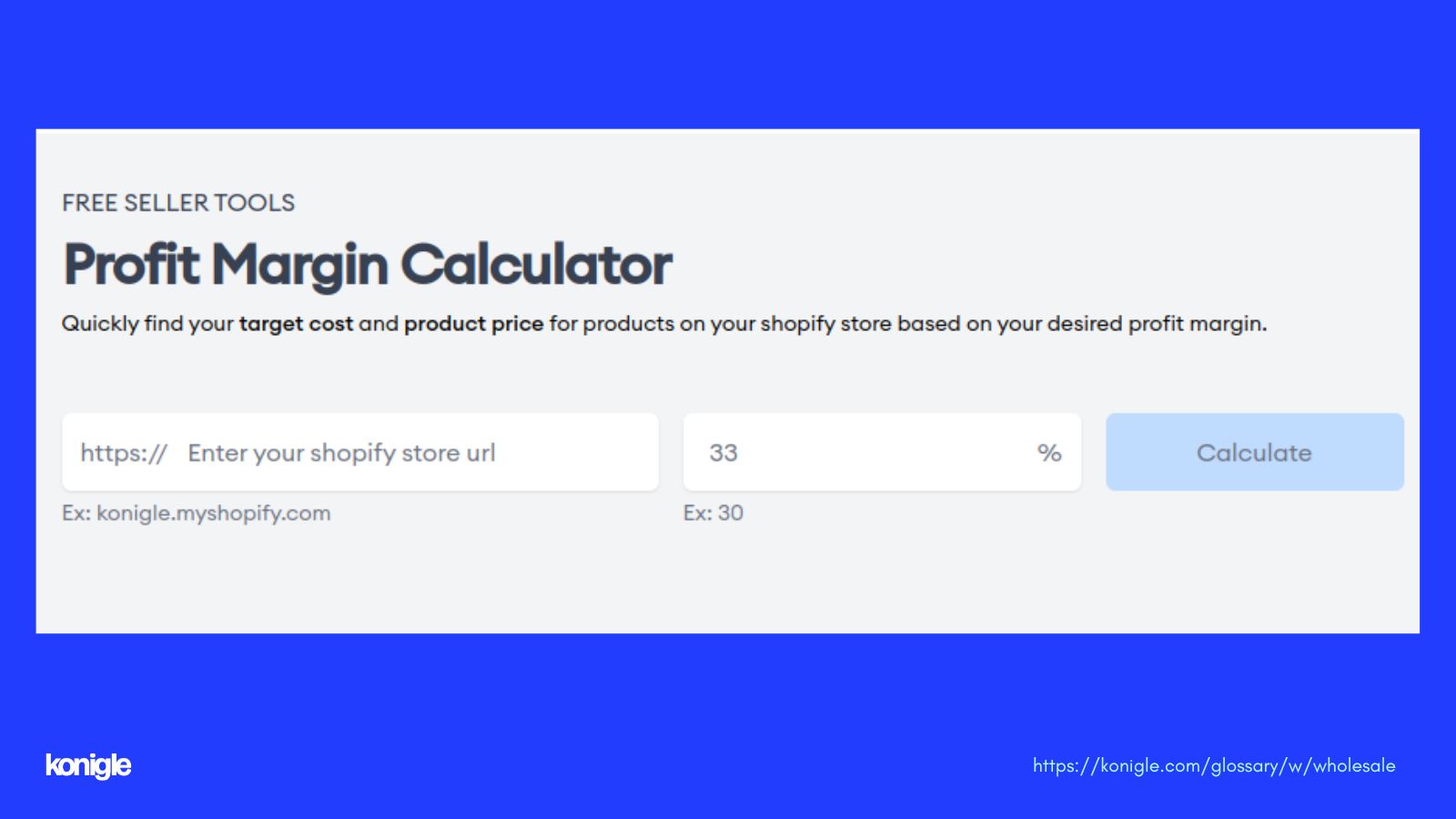Wholesale
Wholesale involves purchasing goods in bulk from manufacturers and selling them at a markup to retailers or businesses, facilitating cost savings and predictable profits in the supply chain.
What is wholesale meaning in business?
In wholesale, a person or company purchases products from manufacturers and then sells products in bulk to various companies, businesses, or retailers for onward sale to customers, either directly or through a supplier.
The main aim of wholesale is to sell products for a lower price as they are selling in bulk, which reduces the handling time and costs and also reduces stock (in stores).
The wholesalers are like middlemen who sell mainly to retailers, other merchants, and commercial industries and basically, they buy for resale or business use.
Wholesale can also refer to small stores that purchase products from a wholesaler, and then sell them at your own store at a little higher price to make a good profit. This higher price is known as the retail price, and it’s what customers will pay when they purchase something from your store.
In operating an e-commerce store, changing prices in bulk for lots of products (from 100s to 1000s) is a big pain. It takes time and is extremely error-prone. So that is why Konigle launched Shopify Bulk Price Editor, which helps you to bulk edit prices, run scheduled promotions, and roll back prices with one click.
What are the elements of wholesale?
There are three main elements present in all wholesale processes.
Manufacturer: The manufacturer starts the whole process; he is the first element that actually creates something to sell.
Wholesaler: A wholesaler act as a middleman who distributes goods in bulk from manufacturers to stores. Buying in bulk allows wholesalers to purchase the goods at a discount or wholesale price and resell them to stores at a little higher price.
Stores: In wholesaling, the store owners purchase a specific quantity of goods from a wholesaler and sell them to their customers (buyers), such as something (e.g., a T-shirt, a watch, etc.) selling on the Shopify store.
Benefits of wholesale
In wholesale, there are lots of benefits and advantages here are some:
1. Save Money
Buying goods in bulk can save you a lot of money with the help of discounts that wholesalers get for bulk orders. You can get items for a lower price and sell them for more.
2. Build a Network
In wholesaling, you need a network of suppliers who can handle your store requirements from time to time. The supplier should deliver goods on time, maintain the standard of items, and honor the business relationship in the future.
3. High Profits
Wholesaling is a symmetrical process, and that's why the profits you are getting are very predictable. For your store, you can purchase goods at a low price (bulk price) and sell them to customers with higher margins.
To calculate a successful margin, you can use Konigle's Profit Margin Calculator to quickly find your target cost and product price for products on your Shopify store based on your desired profit margin.
Growth in store: Over time, you become an expert by selling the best items at your store. No matter what your items catalog is, you can understand it with the help of an efficient sourcing and supplying system, and you can increase your inventory as well.




